Jul 9, 2024 11:35 AM
Trumpeter, Educator Jim Rotondi Dies at 61
Jim Rotondi, a renowned hard-bop trumpeter, composer and educator, died suddenly on July 7 at a hospital in France. He…
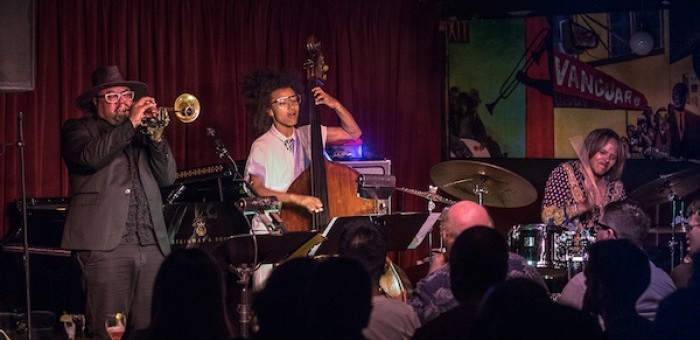
Nicholas Payton (left), Esperanza Spalding and Terri Lyne Carrington perform in a tribute to pianist Geri Allen at the Village Vanguard in New York.
(Photo: Peter B. Blaikie )The premature passing of pianist Geri Allen at the age of 60 on June 27 left the jazz world reeling from a profound sense of loss commensurate with the enormity of her artistry. While her many colleagues tearfully mourned her death in sorrow, it was only appropriate for them to also celebrate her life in song. So rather than cancel scheduled appearances by the groundbreaking cooperative ACS trio, which had featured Allen with bassist Esperanza Spalding and drummer Terri Lyne Carrington during the past decade, it was decided to instead seize the opportunity to pay tribute to the pianist’s musical legacy: first at the Newport Jazz Festival with a set that found pianists Jason Moran, Vijay Iyer and Christian Sands taking turns filling in for Allen, and the following week at the Village Vanguard, where Joe Lovano, Nicholas Payton and Ravi Coltrane were featured with Spalding and Carrington on separate nights in a weeklong engagement of 12 sold-out sets.
The Vanguard celebration, billed A Tribute To Geri Allen, began Aug. 8 with Lovano (who had appeared at the club just the week before, leading his nonet in a centennial commemoration of Tadd Dameron) wielding his tenor saxophone in the company of Spalding and Carrington. Opening their second set with Eric Dolphy’s “Miss Ann,” a page out of the ACS songbook, the trio cohered as if they had long been playing together, the distinction between soloist and accompanist blurred.
On a medley of Wayne Shorter’s “Virgo” and “Fall,” the trio progressed through a series of tempo and dynamic variations with breathtaking emotional depth. Spalding’s supple tone and Lovano’s airy sound enveloped each other as they sailed over Carrington’s ever-shifting rhythms.
On Charlie Haden’s hymn-like “First Song,” the mood turned pensive, evoking a palpable melancholy that was nonetheless tinged with a festive sense of hope that reflected the feelings of many in the room. The set’s centerpiece, Allen’s “Unconditional Love” (ACS’s signature song), featured Spalding’s distinctive vocal style, which modulated between gritty bluesiness and tantric etherealism buoyed by Carrington’s tonally refined brush and mallet work and Lovano’s sensitive obbligati. The trio closed climactically, with a powerful uptempo reading of Allen’s “Feel The Fire,” as the crowd cheered the band on with raucous shouts and applause.
On Aug. 9 and 10, Nicholas Payton filled out the trio, playing both trumpet and piano, at times simultaneously. The threesome opened their second night’s second set with a similarly incendiary rendition of “Feed The Fire” and then moved on to the moody medley of “Virgo” and “Fall” (a mainstay of ACS’s repertoire from their 2016 tour celebrating Shorter’s 80th birthday) with Payton opening up the latter on piano, then taking up the melody on trumpet before launching into an atmospheric improvisation that was followed by a Spalding solo.
The bassist introduced Payton’s commemorative composition “Geri,” inviting the audience to join the band on the piece by softly singing the song’s title together. She initiated the piece with a poetic recitation lauding her departed friend as she accompanied herself on bass. As the song progressed, the bassist’s voice was unexpectedly replaced by that of Allen, culled from a recorded interview with the pianist speaking on the unique nature of the ACS trio. As the band traversed through the meditative melody the audience joined in an emotional call and response that conjured the spirit of Allen into the vaulted basement.
Carrington’s steady bass drumming set up “Unconditional Love.” As Spalding entered, her bass picked up her partner’s rhythm, on top of which she sang horn-like lines with escalating intensity over Payton’s piano accompaniment. Picking up his trumpet, he played the horn with his right hand while comping chords on the keyboard with his left, conversing with Spalding in his lower register as she sang soaring high notes over Carrington’s fluid drumming. The song was supposed to be the set’s closer, but the cheering crowd brought the band back for an impromptu encore, for which they played a fiercely bopping rendition of Charlie Parker’s “A-leu-cha” that had Payton exchanging choruses with Spalding’s scat vocals and trading fours with Carrington.
Ravi Coltrane, who regularly played with Allen’s group at the Vanguard, joined Spalding and Carrington on Aug. 11. Carrington started off the evening’s last set noting that this was the first time she and Spalding were playing with the saxophonist, a fact belied by the incredibly unified sound evinced by the band throughout the set.
The trio started things off with Ornette Coleman’s “Lonely Woman,” which Carrington introduced by recounting Allen’s history as one of the few pianists to perform with the saxophonist. Impressionistic solo bass and malleted tom toms introduced the brooding classic, with Spalding playing the melody first before Coltrane’s entrance on tenor. Spalding walked hard behind Carrington’s powerful ride cymbal and snare rolls, pushing the piece to a wild finish.
Introducing “Unconditional Love,” Spalding described the Allen composition, heard every night that week, as “one of those songs that feels like it’s been around forever, and is going to be here forever.” Bass and drums dialogued to open the week’s most soulful take on the piece, with Spalding following her introductory monologue with a tuneful ostinato before singing the melody in a childlike tone. Coltrane picked up her cadenced phrasing as he harmonized with her voice, switching from tenor to soprano midway through her vocal solo.
Returning to tenor, Coltrane stretched out for an episodic improvisational excursion on a “Virgo/Fall” medley that opened atmospherically, with Spalding whistling over her Jimmy Garrison-style strummed bass. Carrington rattled a bell cluster over her drum kit before the bass and drum duo engaged in a cadenced dialogue that alternately reinforced and deconstructed the rhythmic line. Coltrane rode the tempo variations with seemingly telepathic intuitiveness. The band closed out with another incendiary rendition of “Feel The Fire” that brought Dee Dee Bridgewater out of the audience and onto the bandstand, fueling the flames of the trio as she scatted with inspired abandon to the delight of the trio and the packed house. DB
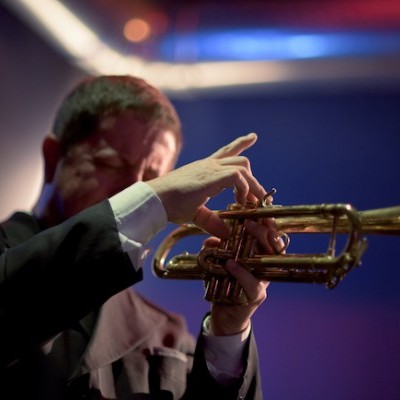
Jim Rotondi was acclaimed for his wide, round trumpet tone, remarkable virtuosity and assured swing.
Jul 9, 2024 11:35 AM
Jim Rotondi, a renowned hard-bop trumpeter, composer and educator, died suddenly on July 7 at a hospital in France. He…
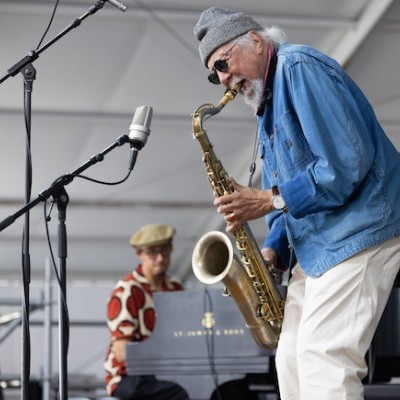
Charles Lloyd, seen here at the 2024 New Orleans Jazz & Heritage Festival, makes DownBeat Poll history!
Jul 11, 2024 12:23 PM
The incomparable Charles Lloyd swept the 72nd Annual DownBeat Critics Poll, becoming the first artist ever to earn…
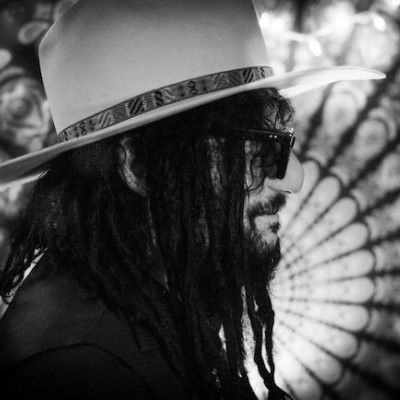
“Being president of Blue Note has been one of the coolest things that ever happened to me,” Was said. “It’s a gas to serve as one of the caretakers of that legacy.”
Jun 4, 2024 12:21 PM
Sitting with Don Was is a comfortable and unhurried exercise. He may seem slightly reserved at first, but ideas and…
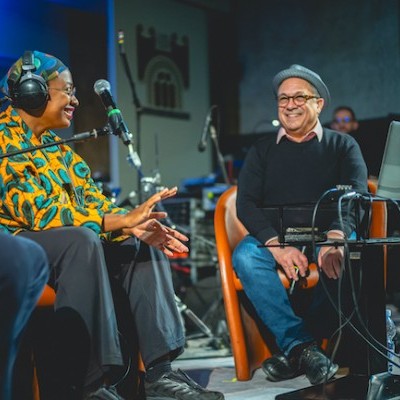
“She reminds me of my childhood and makes we want to cry,” Cécile McLorin Salvant, pictured here with writer Ashley Kahn, said of Dianne Reeves.
Jun 11, 2024 12:31 PM
Italy’s Umbria Jazz Winter is one of those rare annual festivals that not only coincides with a major holiday —…
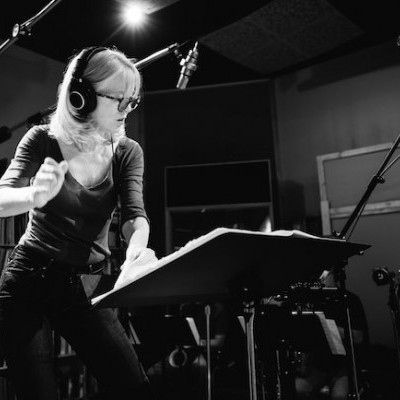
Maria Schneider said of Decades, her new compilation release: “I just wanted to create something, put it in a beautiful box and say, ‘Look at what we did.‘”
Jun 18, 2024 12:00 PM
Maria Schneider opened the sleek black box and placed it on a coffee table in her Manhattan apartment. Inside lay the…